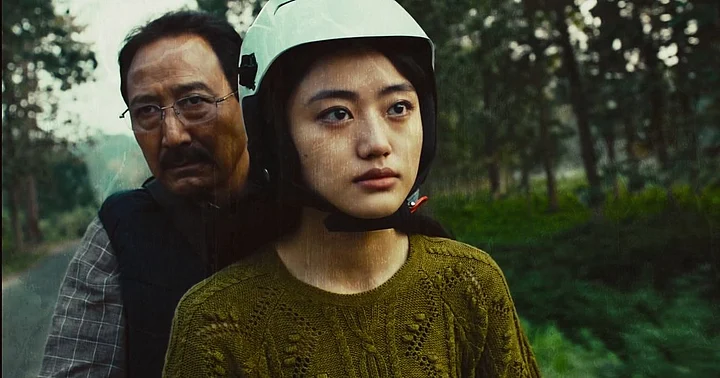Anek is a rare, timely and powerful social-political drama that brings to focus the troubled region of Northeast India. The film begins with Aido (Andrea Kevichusa), who is seen entering a pub with her friends. When the place is raided by police officials, she is the first one to be taken as she belongs to the Northeast. She is abused and subjected to abusive comments by officials such as ‘parlour girl’, ‘massage woman’, and ‘one who runs a prostitution racket’. Even educated people harbour prejudices about the culture and the people of the Northeast, though it’s part of the Indian subcontinent.
Aman alias Joshua (Ayushman Khuranna) is a secret cop and undercover agent who tries to strike a peace accord with separatist leader Tiger Sangha. During his mission, as he comes to understand the ground realities and the problems that the people of the Northeast face, he becomes more involved and invested in them. His mission then becomes to bring complete peace and tranquillity to the region and reduce the racial tensions that have prevailed for ages.
Anek is a rare, timely and powerful socio-political drama that brings to focus the troubled region of Northeast India.
The movie, though flawed in many aspects and occasionally preachy, is a well-meaning and rare attempt that poses critical questions about who is an Indian.
It shows that peace is a subjective concept; peace for one doesn’t necessarily mean peace for all.
Racism has become a social process, and the alienation or willful ignorance of the Northeasterners by mainstream India is now normalised.
Who Really Is an Indian?
In the past, the anti-race movement and the Black Lives Matter protests gained momentum in not only the US but the whole world. People, as well as governments across countries, came forth against racial discrimination. In India, people moved to social media to show their support. However, the irony is to see Indians hurling similar colourism and racial discrimination – even and especially during the times of COVID – at the Northeast population.
Racism has become a social process, and the alienation or willful ignorance of the Northeasterners by mainstream India is now normalised. Aido (Andrea Kevichusa), who plays an aspiring boxer, faces such exclusion when her coach says that she and her friend cannot get on the same team because people would ask whether she is Indian or Chinese. The incident is typical of the judgement and exclusion the people of the Northeast face in other parts of India because of their physical features, colour, or even their food, making them an alienated whole.
The movie, though flawed in many aspects, poses critical questions about who is an Indian, with narratives, theories and a range of expositions. It shows that peace is a subjective concept; peace for one doesn’t necessarily render peace for all.
The word ‘Anek’ means ‘many’, and it exemplifies the ideological conflict that Aman highlights – how do you know anyone is Indian? Is it North, South, East, or West India? Largely, the movie talks about issues associated with everyday life in India and urges us to find unity in our diversity.
Violence Is Not Always Physical
As in any region rife with conflict, in the Northeast, too, the struggles against division and discrimination have long pushed many children towards insurgency and violence. Such is also the character of Niko (Thejasevor Belho), who becomes an extremist after experiencing violence as a daily affair in his place. The reality here is disturbing and ought to be acknowledged.
Racism uses symbolic violence, as is explained in the works of French sociologist Pierre Bourdieu – a type of non-physical violence that is manifested in the power differences between social groups and is seen across social domains like nationality, gender, sexual orientation, or ethnic identity. Such symbolic violence is amply highlighted in the movie.
Anek is an attempt to present a layered picture of the neglected Northeast. It stands for a more thoughtful approach to negotiating peace, with sensitive dialogues and strong performances; it also draws subtle parallels between the Northeast and the rest of India. The subject is unique and socially relevant and can make the audience think about the disturbing and long-festering realities in the states of Northeast India. Though occasionally preachy, it is a well-meaning film.
(The author teaches sociology at the Central University of Odisha, Koraput. She specialises is issues of gender, migration, tribal and labour sociology. This is an opinion article and the views expressed are the author's own. The Quint neither endorses nor is responsible for them.)
